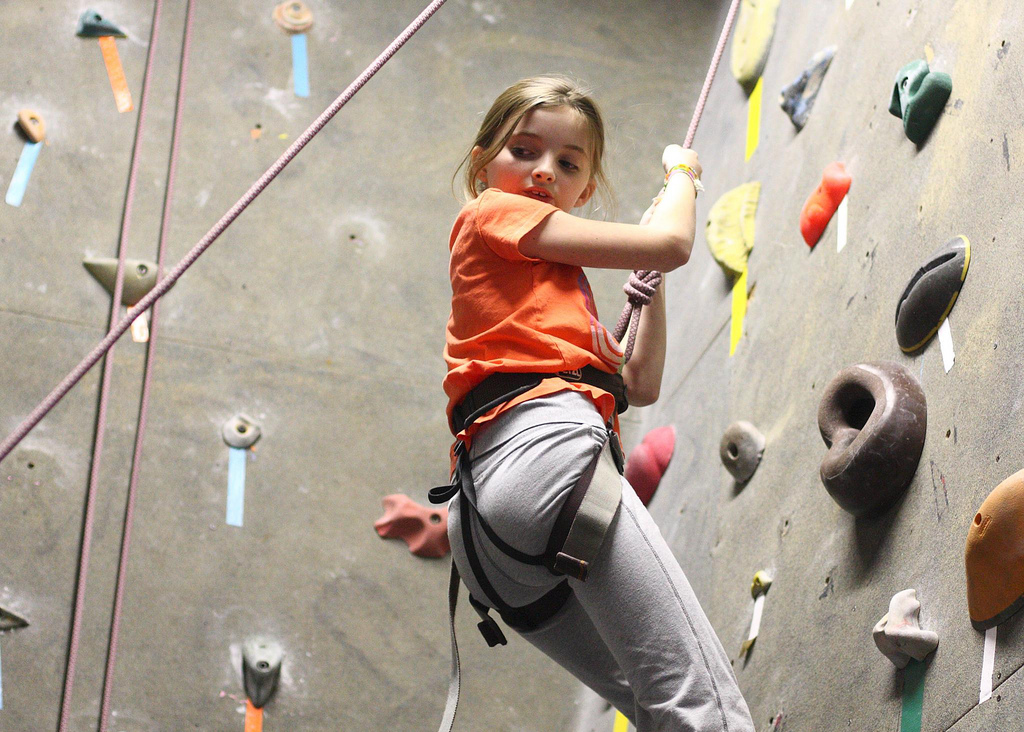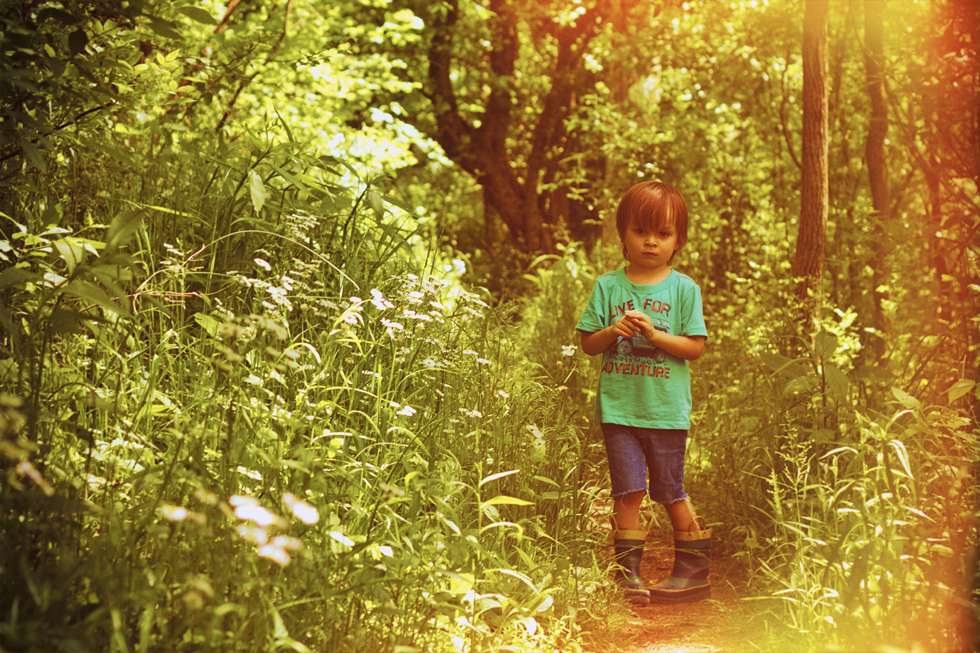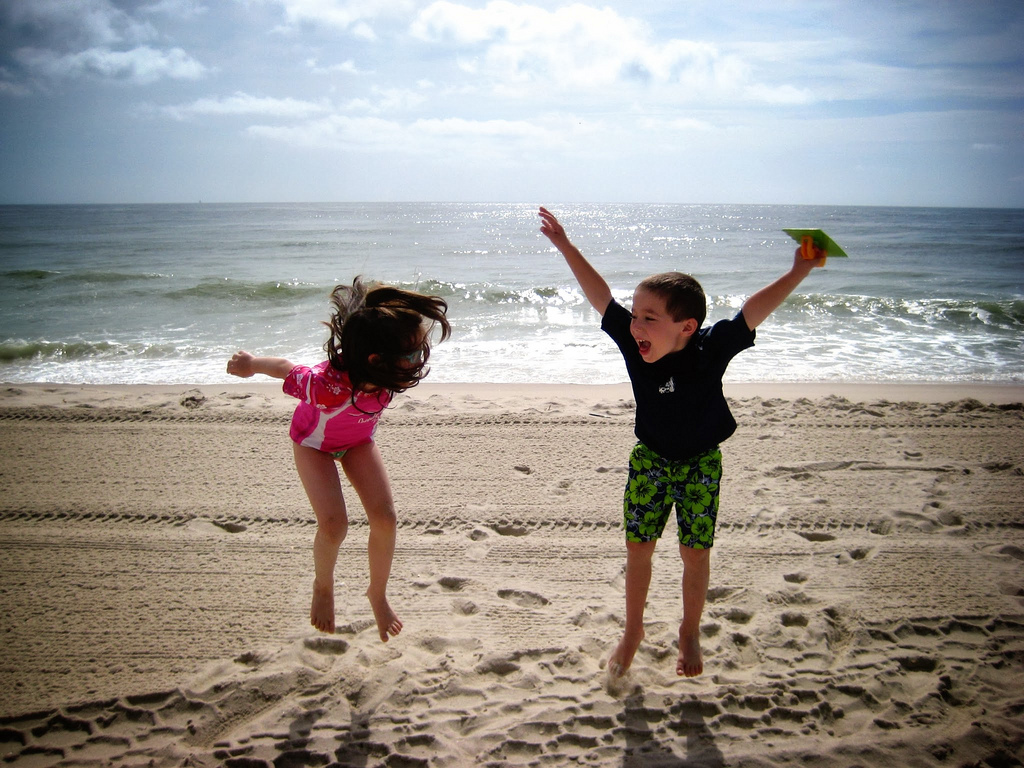We know that children should be more active and spend more time outside. The problem is that there are so many obstacles to making it happen: space, time, competition from screens and yes, safety.
How many parents feel safe at letting their children play out in the streets, go to the local shop or park by themselves or go off for the day with friends? There are just so many dangers: traffic, predatory strangers, getting lost; as a result children take part in these activities less and less. These are human fears – we don’t want our children to be abducted or hurt so it makes sense to take that extra precaution right? The problem is that this attitude creates its own set of issues. Many children end up never having had the chance to take risks or make decisions. It is the parents who are assessing the risks and removing them but if children never have the chance to learn how to do these things for themselves, they will never learn to manage risk for themselves. Surely this is a more dangerous position to be in. There are also consequences for the mental health of children and young people especially if they never feel independent or in control of their own lives.

Photo credit: Martin Gommel / Foter / Creative Commons Attribution-NonCommercial-NoDerivs 2.0 Generic (CC BY-NC-ND 2.0)
Outdoor adventure activities are one excellent way of teaching children these skills of confidence, independence, resilience and risk management. Of course this needs to be done in a carefully managed way – getting lost in the mountains or going climbing without the correct equipment is no laughing matter but these activities prepare and teach children, in a physical way, about the importance of independence, responsibility and preparation encouraging them to be problem solvers. Not only that but they push children outside their comfort zone and give them a bit of adrenalin which invigorates them in so many ways. Additionally and as importantly, adventure sports also teach children that they need the support of their team mates to be successful and that they have to work together for things that they may take for granted in day to day life. Here are some examples of great activities:

Photo credit: simpologist / Foter / Creative Commons Attribution-NonCommercial 2.0 Generic (CC BY-NC 2.0)
Camping: This is a cheap way of getting closer to nature with a range of options to suit everyone of all ages. From popping up a tent in the back garden, to using a site with well-developed facilities, to wild camping miles off the beaten track, the opportunities are endless. From being up early, to spending the days being busy and active to evenings round the campfire and ghost stories by torchlight, children love going back to basics seeing themselves as intrepid adventurers. Get them involved with the jobs from setting up the tent to cooking, water carrying and washing up. It will be all part of the fun for them. They will soon see that if the work doesn’t get done, those essentials for day to day living such as food, water and shelter are compromised leaving them cold, damp and hungry.

Photo credit: adwriter / Foter / Creative Commons Attribution-NonCommercial 2.0 Generic (CC BY-NC 2.0)
Climbing: Great to push children outside their comfort zone and to build team work. This can be a great way for children to build self-esteem and face their fears doing something that they thought they couldn’t. There are also lots of indoor climbing centres now which are a great way to get started and introduce you to those who organise expeditions in the local area.

Photo credit: Kevin Conor Keller / Foter / Creative Commons Attribution-NonCommercial-NoDerivs 2.0 Generic (CC BY-NC-ND 2.0)
Walking: This can be such a great lesson in patience and persistence and something that everyone in the family can do to spend time together regardless of skills or fitness levels. Even if you live in an urban environment there are some wonderful walks to be had, perhaps along a canal or river. It can also be a great lesson in navigation. Get the children to pick the route and get gloriously lost (it helps if you as the adult still have a good idea of where you are and how to get back!). This can also provide children with a chance to learn what to do if they get lost for real. Out in the countryside there can be nothing better than a good day out in the hills. What a sense of achievement after a long, hard climb to see the view from the top and the countryside around. The only thing that can make it even better is if you have a picnic to enjoy!
Canoeing/Kayaking: Again this is something that can be done both in the city and the countryside or at the beach and each different environment can provide such rewarding paddling. This is a chance for children to pick up skills quickly and feel independent on the water. It is also a good chance to learn about water safety and rescue. These can be sports for all ages and abilities as canoes can have a number of paddlers and can be lashed together for extra security; kayaks can come as tandems as well.
With all outdoor activities, think about what suits your and your family in terms of location, budget and interests and above all think about what level is suitable for your children. The last thing you want to do is put them off by forcing them up hills in the driving snow when they are miserable. There is a fine balance between pushing them outside their comfort zone and pushing them so hard that they are put off for good. Think about ways of motivating and encouraging children who are getting tired or impatient: a treasure hunt for local flora and fauna or games such as hide and seek en route which is always a winner.

Photo credit: Kevin Conor Keller / Foter / Creative Commons Attribution-NonCommercial-NoDerivs 2.0 Generic (CC BY-NC-ND 2.0)
The ability to assess and manage risk independently is one of the most important skills we can give to our children to enable them to make wise decisions when we are not there hovering over them. Yes, there will be scraped knees and bumps and bruises along the way but the benefits for both their physical and mental health are so wide. Instead of encouraging children to „˜be safe’, encourage them to think of what they would do if things went wrong. This will teach them to manage fear and become problem solvers rather than problem avoiders. Hopefully too they will develop a lifelong love of the outdoors.
What are your children’s favourite outdoors adventures?

















